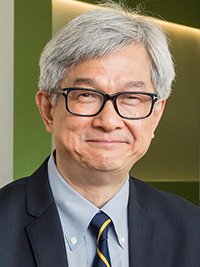
Distinguished Professor & Director, COHNOR
University of California, Los Angeles (UCLA)
Single molecule studies of extracellular vesicles: A quantitative approach for identifying signatures of pancreatic cancer
Overview
Pancreatic ductal adenocarcinoma (PDAC) is one of the deadliest cancers worldwide. The median survival of PDAC patients remains shorter than 6 months and the 5-year overall survival is only 6%. This situation is predominantly due to the late diagnosis. Population-based screening for PDAC has not been possible due to the lack of a reliable and non-invasive screening method. Liquid biopsy (LB) to detect genomic alterations in tumor tissue via peripheral body fluid analysis is an emerging technology that can be utilized for early diagnosis of PDAC. An efficient non-invasive tool to screen the highrisk cohorts will greatly aid in decision-making for further diagnosis and treatment. We have recently demonstrated the clinical utility and performance of the “Electric Field Induced Release and Measurement (EFIRM)” technology for detection of actionable EGFR mutations in plasma and saliva from non-small cell lung carcinoma (NSCLC) patients with near 100% concordance with tissue biopsy-based genotyping. Our preliminary data showed EFIRM is able to accurately detect KRAS G12D oncogenic mutation in serum of PDAC patients. Since 90% of PDAC patients harbored at least one KRAS mutation. The EFIRM technology is translatable to the detection/risk assessment of PDAC. The non-invasive nature of EFIRM will allow longitudinal dynamic monitoring of KRAS mutations to evaluate treatment response. Integration of this novel assay into PDAC prescreen programs will augment and enhance the currently available diagnostic options for PDAC detection such as computed tomography (CT) and endoscopy. The outcome of this study will set the basis for clinical utilization of EFIRM-based LB targeting KRAS and other PDACassociated mutations for early detection and risk assessment.

